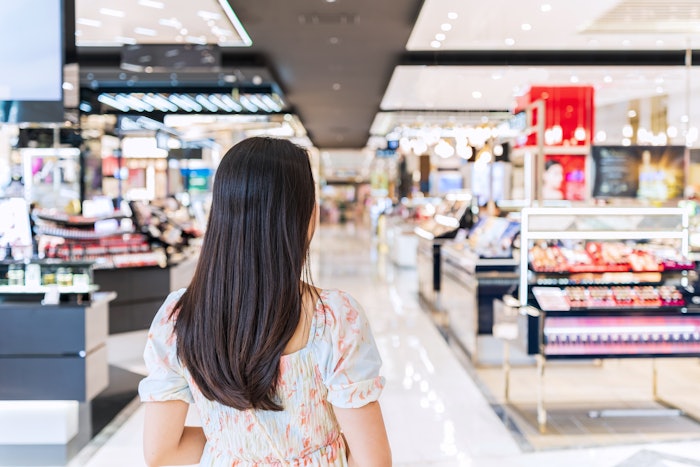In the vibrant landscape of beauty and skincare, cosmetics stores in America have undergone a significant evolution, catering to diverse consumer preferences and industry trends. From traditional brick-and-mortar establishments to innovative online platforms, here’s a detailed exploration of the dynamics shaping the cosmetics retail sector in the United States.

Origins and Historical Significance
Cosmetics stores have a rich historical legacy, dating back to ancient civilizations where natural ingredients were used for beauty rituals and adornment. Over time, the concept of dedicated cosmetics retail emerged, with early pioneers establishing standalone shops offering an array of beauty products and services.
The Rise of Specialized Boutiques
In the mid-20th century, the beauty industry witnessed the emergence of specialized boutiques catering to niche markets and unique customer segments. These boutique stores offered curated selections of high-end cosmetics brands, personalized consultations, and exclusive shopping experiences, setting the stage for a new era of luxury beauty retail.
Expansion of Department Store Cosmetics Counters
Concurrently, department stores capitalized on the growing demand for cosmetics by expanding their cosmetics counters and beauty departments. This strategic move allowed department stores to leverage their existing customer base and retail infrastructure to offer a wide range of beauty products from various brands under one roof.
Advent of Specialty Beauty Retailers
The late 20th and early 21st centuries saw the rise of specialty beauty retailers, such as Sephora and Ulta Beauty, revolutionizing the cosmetics retail landscape. These innovative stores introduced experiential shopping concepts, interactive displays, and comprehensive product offerings, attracting a diverse clientele and redefining the beauty shopping experience.
Evolution of Online Cosmetics Platforms
With the advent of e-commerce, cosmetics stores have expanded their presence to the digital realm, offering online platforms for purchasing beauty products and accessing virtual beauty services. Online cosmetics retailers leverage advanced technologies, personalized recommendations, and social media integration to engage consumers and drive sales in the digital space.
The Impact of Influencer Marketing
Influencer marketing has emerged as a powerful force shaping consumer preferences and purchasing decisions in the cosmetics industry. Beauty influencers and content creators collaborate with brands and retailers to promote products, share reviews, and showcase tutorials, influencing millions of followers and driving traffic to cosmetics stores both online and offline.
Customization and Personalization Trends
Cosmetics stores are increasingly embracing customization and personalization trends to cater to individual preferences and diverse skin tones. Brands and retailers offer customizable beauty products, shade-matching technologies, and personalized skincare consultations, empowering consumers to curate their beauty routines with precision and confidence.
Sustainability and Ethical Sourcing Initiatives
In response to growing consumer awareness and demand for sustainability, cosmetics stores are prioritizing ethical sourcing practices, eco-friendly packaging, and cruelty-free formulations. Brands and retailers are partnering with sustainable suppliers, implementing recycling programs, and supporting social causes to promote environmental stewardship and ethical business practices.
Integration of Technology and Augmented Reality
Cosmetics stores are leveraging technology and augmented reality (AR) to enhance the shopping experience and facilitate virtual try-on experiences. AR beauty apps allow consumers to virtually test makeup products, experiment with different looks, and receive personalized recommendations, bridging the gap between online and offline shopping channels.
Community Engagement and Brand Advocacy
Cosmetics stores are fostering community engagement and brand advocacy through experiential events, educational workshops, and social media initiatives. Beauty enthusiasts participate in brand-sponsored events, share user-generated content, and join online communities to connect with like-minded individuals, fostering a sense of belonging and brand loyalty.
The Future of Cosmetics Retail
Looking ahead, the future of cosmetics retail is poised for continued innovation and evolution, driven by advancements in technology, changing consumer preferences, and industry dynamics. Cosmetics stores will continue to adapt and transform, embracing digitalization, sustainability, inclusivity, and experiential retail concepts to meet the evolving needs of beauty consumers in America and beyond.
In conclusion, cosmetics stores in America have undergone a remarkable evolution, from traditional brick-and-mortar establishments to innovative online platforms and experiential retail destinations. By embracing technological advancements, sustainability initiatives, and community engagement strategies, cosmetics retailers are redefining the beauty shopping experience and shaping the future of the industry.
